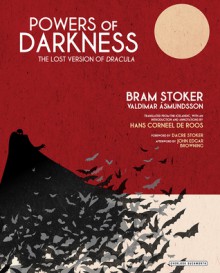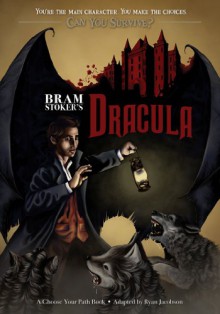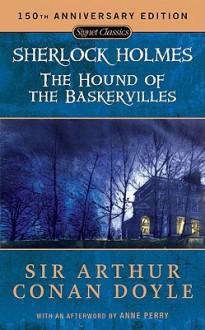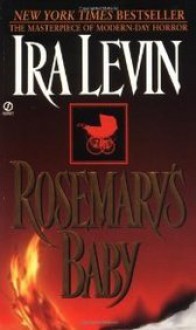So here are my Classic Crime books:
The Hound of the Baskervilles (Sherlock Holmes #5) by Sir Arthur Conan Doyle.
The death, quite suddenly, of Sir Charles Baskerville in mysterious circumstances is the trigger for one of the most extraordinary cases ever to challenge the brilliant analytical mind of Sherlock Holmes. As rumours of a legendary hound said to haunt the Baskerville family circulate, Holmes and Watson are asked to ensure the protection of Sir Charles' only heir, Sir Henry - who has travelled all the way from America to reside at Baskerville Hall in Devon. And it is there, in an isolated mansion surrounded by mile after mile of wild moor, that Holmes and Watson come face to face with a terrifying evil that reaches out from centuries past . . .
Murder on the Orient Express (Hercule Poriot #10) by Agatha Christie.
What more can a mystery addict desire than a much-loathed murder victim found aboard the luxurious Orient Express with multiple stab wounds, thirteen likely suspects, an incomparably brilliant detective in Hercule Poirot, and the most ingenious crime ever conceived?
The Tell-Tale Heart by Edgar Allen Poe.
A murderer is convinced that the loud beating of his victim's heart will give him away to the police.
The Hollow Man by John Dickson Carr.
Professor Charles Grimaud was explaining to some friends the natural causes behind an ancient superstition about men leaving their coffins when a stranger entered and challenged Grimaud's skepticism. The stranger asserted that he had risen from his own coffin and that four walls meant nothing to him. He added, 'My brother can do more... he wants your life and will call on you!' The brother came during a snowstorm, walked through the locked front door, shot Grimaud and vanished. The tragedy brought Dr Gideon Fell into the bizarre mystery of a killer who left no footprints.
The Mysterious Affair at Styles (Hercule Poirot #1) by Agatha Christie.
Who poisoned the wealthy Emily Inglethorpe, and how did the murderer penetrate and escape from her locked bedroom? Suspects abound in the quaint village of Styles St. Mary--from the heiress's fawning new husband to her two stepsons, her volatile housekeeper, and a pretty nurse who works in a hospital dispensary. Making his unforgettable debut, the brilliant Belgian detective Hercule Poirot is on the case.
Here are my Classic Horror books:
Frankenstein by Mary Shelley. (Blue's comment-I couldn't finish this).
rankenstein tells the story of committed science student Victor Frankenstein. Obsessed with discovering the cause of generation and life and bestowing animation upon lifeless matter, Frankenstein assembles a human being from stolen body parts but; upon bringing it to life, he recoils in horror at the creature's hideousness. Tormented by isolation and loneliness, the once-innocent creature turns to evil and unleashes a campaign of murderous revenge against his creator, Frankenstein.
Dracula by Bram Stoker.
When Jonathan Harker visits Transylvania to help Count Dracula purchase a London house, he makes horrifying discoveries in his client's castle. Soon afterwards, disturbing incidents unfold in England: a ship runs aground on the shores of Whitby, its crew vanished; beautiful Lucy Westenra slowly succumbs to a mysterious, wasting illness, her blood drained away; and the lunatic Renfield raves about the imminent arrival of his 'master'. In the ensuing battle of wills between the sinister Count and a determined group of adversaries - led by the intrepid vampire hunter Abraham van Helsing - Bram Stoker created a masterpiece of the horror genre, probing into questions of identity, sanity and the dark corners of Victorian sexuality and desire.
Rosemary's Baby by Ira Levin.
Rosemary and Guy Woodhouse, an ordinary young couple, settle into a New York City apartment, unaware that the elderly neighbors and their bizarre group of friends have taken a disturbing interest in them. But by the time Rosemary discovers the horrifying truth, it may be far too late!
Carmilla by J. Sheridan Le Fanu.
A classic Victorian vampire novella, which influenced Bram Stoker's later treatment of the vampire mythos in Dracula.
The Great God Pan by Arthur Machen.
The Great God Pan" is a novella written by Arthur Machen. A version of the story was published in the magazine Whirlwind in 1890, and Machen revised and extended it for its book publication (together with another story, "The Inmost Light") in 1894. On publication it was widely denounced by the press as degenerate and horrific because of its decadent style and sexual content, although it has since garnered a reputation as a classic of horror. Machen’s story was only one of many at the time to focus on Pan as a useful symbol for the power of nature and paganism. The title was taken from the poem "A Musical Instrument" published in 1862 by Elizabeth Barrett Browning, in which the first line of every stanza ends "... the great god Pan.



 Log in with Facebook
Log in with Facebook 
























